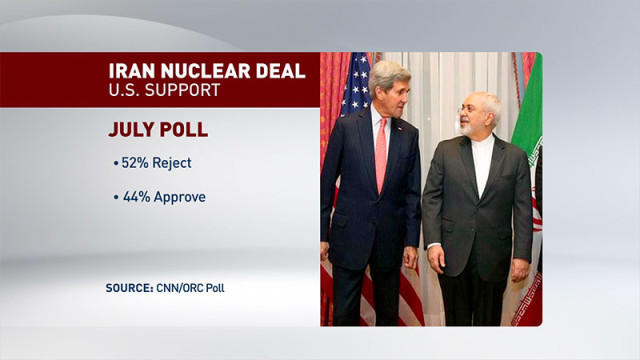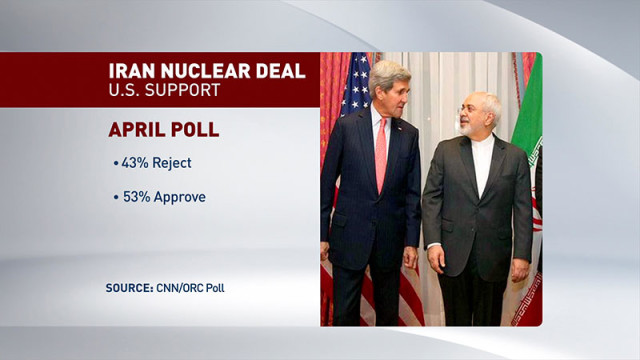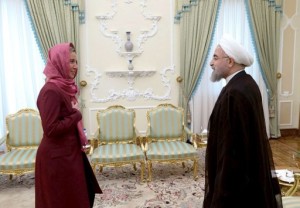Top E.U. Diplomat Federica Mogherini arrived in Tehran for a one-day visit to discuss implementing the Iran nuclear agreement reached earlier this month.

Iran’s Foreign Minister said his deputy ministers would join their E.U. counterparts on high-level talks focusing on trade, energy, the environment and human rights.
“Various issues are matters of interest for both sides, such as energy, transportation, trade, environment, human rights and drug [trafficking]” he said.
Mogherini made it clear that an open-for-business Iran also appeals to European investors.
“I think it’s important for me personally to stress here that when sanctions will be lifted, hand in hand with the implementation of the agreement, you can expect major attention from the EU investment business area”, she told reporters at a joint press conference in Tehran.
Days after reaching the historic deal, Tehran and Washington are locked in their own domestic political debates over the terms of the agreement. Iran’s national security council is reviewing it, and some in parliament are threatening to block provisions.
“I have no concern that after the nuclear deal has gone through its legal stages in Iran, the Islamic Republic will be committed to what it has agreed to do”, said Iranian Foreign Minister Mohammad Javad Zarif.
In Washington, U.S. negotiators are in week two of trying to convince Americans to support the agreement. When grilled by U.S. Congressman Steve Chabot of Ohio on why the American people trust the administration, U.S. Secretary of State John Kerry responded: “We’re not asking them to trust, we’re asking the American people to read the deal and read the components. As I’ve said before nothing in this deal is built on trust. Nothing. It is on very specific steps that have be taken.”
So far, American polls show Kerry’s sales pitch isn’t working. For the first time since the deal was announced, a majority of Americans want the U.S. Congress to reject the deal. A direct reversal from three months ago.
A CNN/ORC poll released Tuesday shows that 52% of Americans polled want the U.S. Congress to reject the Iran Nuclear Agreement. 44% Approve of the deal.

In April of this year, the same poll showed that 53% of Americans favored the deal.

Interest groups are pouring millions of dollars into ad campaigns for and against the deal, and so far, there’s more money against it.
“It’s therefore understandable that the American people would have turned against it in this situation because they have been bombarded on the airwaves by negative commentary about this deal”, said Afshin Molavi of Johns Hopkins University.
The U.S. Congress will vote on September 17th on whether to reject or endorse the deal. Even before it was reached, democratic lawmakers were working to gather enough votes for approval. Republican leaders have vowed to block the agreement and are trying to secure enough votes to override a promised veto by U.S. President Barack Obama.
Reporting by CCTV America’s Jessica Stone
 CGTN America
CGTN America
 President Hassan Rouhani’s office. Greeting EU foreign policy chief Federica Mogherini (L) – Tehran on July 28, 2015.
President Hassan Rouhani’s office. Greeting EU foreign policy chief Federica Mogherini (L) – Tehran on July 28, 2015.
